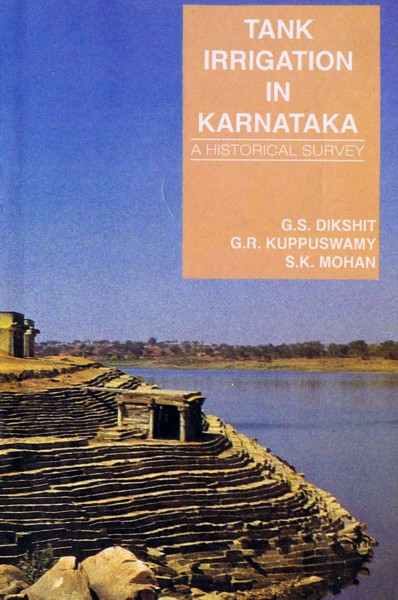Irrigation
Adapting to climate change - Conserving rice biodiversity of the Apatani tribe in North East India - An IGREC working paper
Posted on 15 Feb, 2012 11:47 PMIt also deals with the threat to the biodiversity in the area due to climate changes and argues for the need to devise adaptation strategies at an urgent level to preserve the unique genetic variability of the region and the indigenous knowledge of farming practices in the area.
Adaptation to climate change with a focus on rural areas and India - A document by GTZ (India)
Posted on 15 Feb, 2012 01:59 PMIt aims to strengthen the capacities of rural communities in India to live with climate variability and change. The work includes supporting governments of four partner states of Rajasthan, Tamil Nadu, Madhya Pradesh and West Bengal, local communities and other relevant stakeholders in identifying, developing and carrying out adaptation measures in pilot regions.
"Bottle it up: We can use it" - Scientific studies on human urine - A presentation by Arghyam
Posted on 10 Feb, 2012 11:13 AMThis presentation by Arghyam includes the results of doctoral study done by G Sridevi under the guidance of Prof.
Lift irrigation - Methods and practices: A manual by Mihir Maitra (AFPRO)
Posted on 09 Feb, 2012 12:07 PMAccordingly, the book is written as a technical manual that remains accessible to people seeking to gain necessary expertise in the planning, design, installation and maintenance of lift irrigation systems (LIS).
Nutrient-based fertiliser subsidy: Will farmers adopt agricultural best management practices? An article in EPW
Posted on 06 Feb, 2012 11:58 AMIt offers prospective benefits from the agro-environmental management point of view.
Alternative National Water Policy: Ramaswamy Iyer's response to comments by Rahul Banerjee and Chetan Pandit in EPW
Posted on 04 Feb, 2012 06:44 PMGuest post: Ramaswamy R Iyer
This is in response to the comments made by Rahul Banerjee (“National Water Policy”, 13 August 2011) and Chetan Pandit (“Alternative National Water Policy: A Critique”, 10 September 2011) on my article “National Water Policy: An Alternative Draft for Consideration” (25 June 2011).
Epigrammatic Style
Planning as commoning - Transformation of a Bangalore lake - Paper published in the EPW
Posted on 02 Feb, 2012 11:30 AMThis paper published in the Economic and Political Weekly argues that the transformation of human settlements over time can affect the relationship between communities and commons when, for example, social geographies change from rural to urban, or from traditional systems of management to modern bureaucratic systems.
Tank irrigation in Karnataka: A historical survey
Posted on 24 Jan, 2012 06:12 AMThe book covers entire eras from the ancient to the current period. It also gives information about the structural, financial and institutional aspects of tank construction and management.
The full book is available for download on the India Water Portal. Please right-click on the cover page image of the book, and select 'Save link as', to download the full book.
Changing currents: Plumbing the rights: A film highlighting water as a common good
Posted on 10 Jan, 2012 08:55 PMSource: Culture Unplugged
Democratisation of water management - The experience of Tamil Nadu with governance reforms
Posted on 09 Jan, 2012 12:18 PMNor is the introduction of the private sector and the reduction in the role of the government going to help. Rather, the time has come to introduce changes at the basic or the fundamental level in the way in which the water sector functions.
There is an urgent need to bring about reforms in governance by moving towards decentralisation and democratisation, leading to involvement of people from all the sections of the society, who know and understand that they are responsible for the system and its functioning, as well as by introducing principles of equity and social justice. The papers demonstrate the successful implementation of this approach by describing the experience of Tamil Nadu at democratising water management through introduction of reforms at the level of governance, through involvement of the Tamil Nadu Water Supply and Drainage Board (TWAD).






